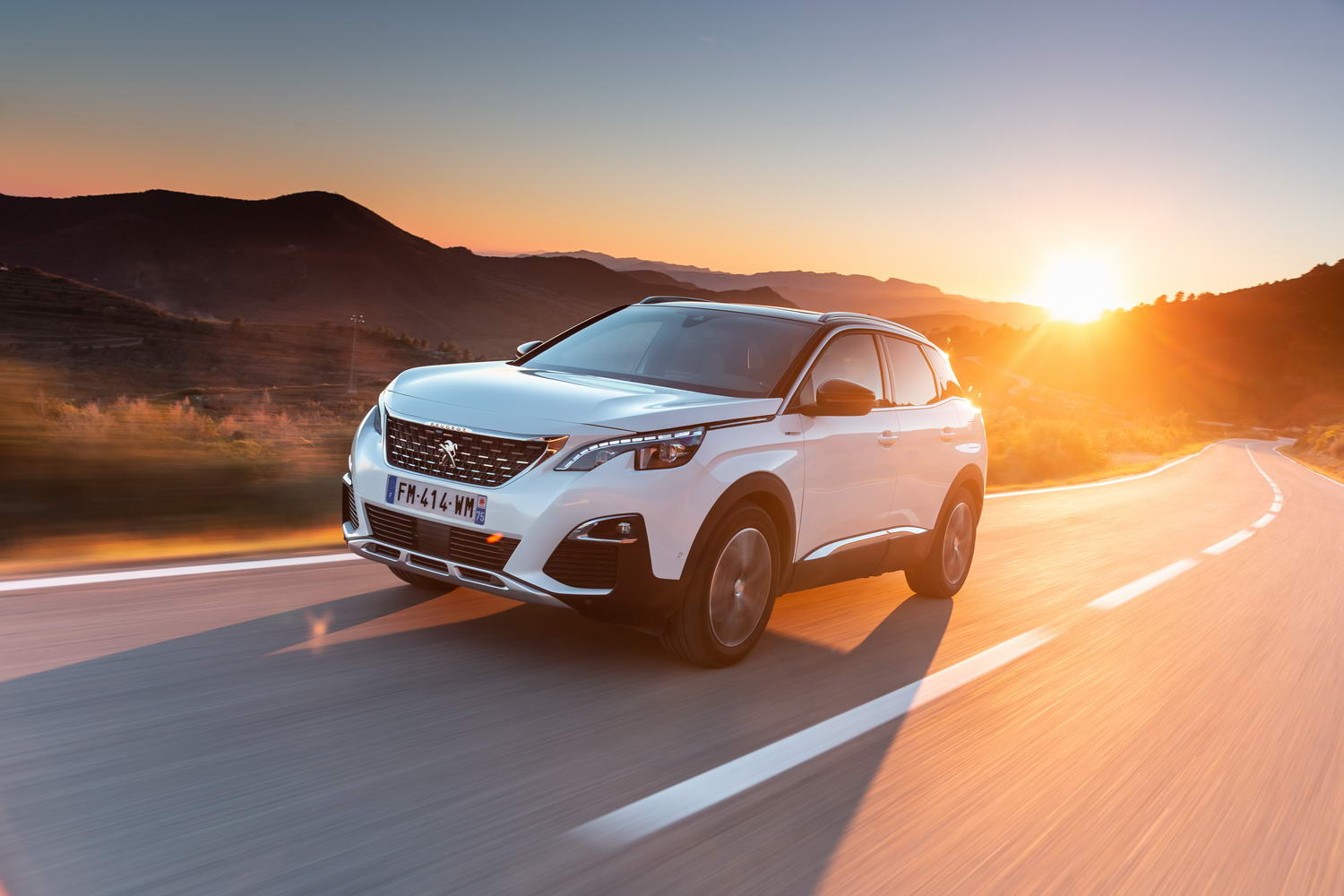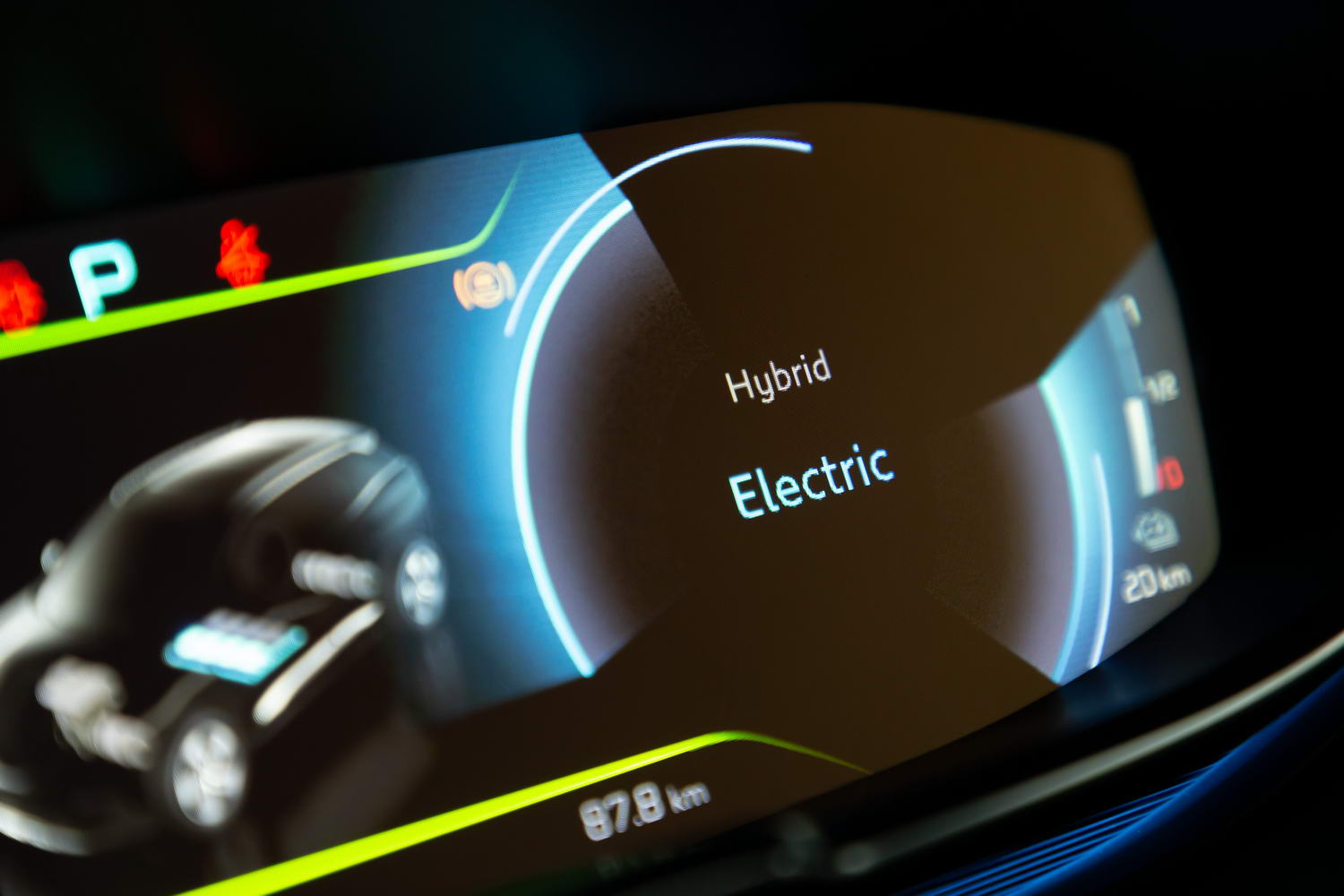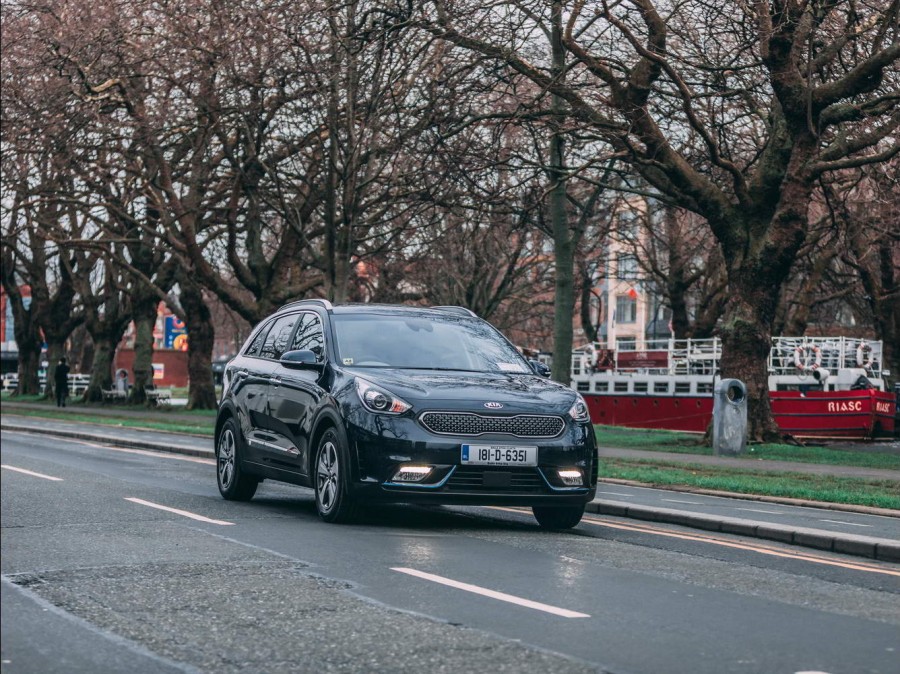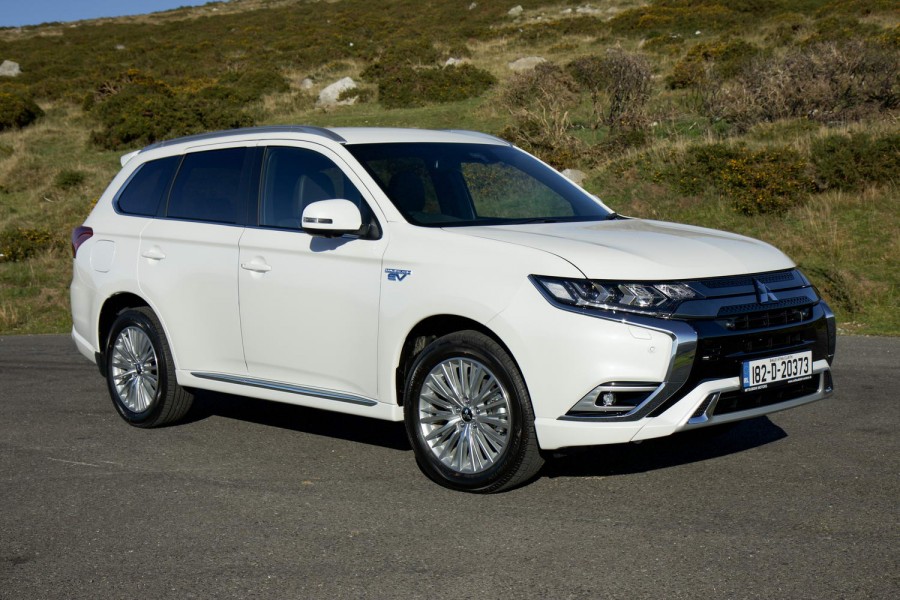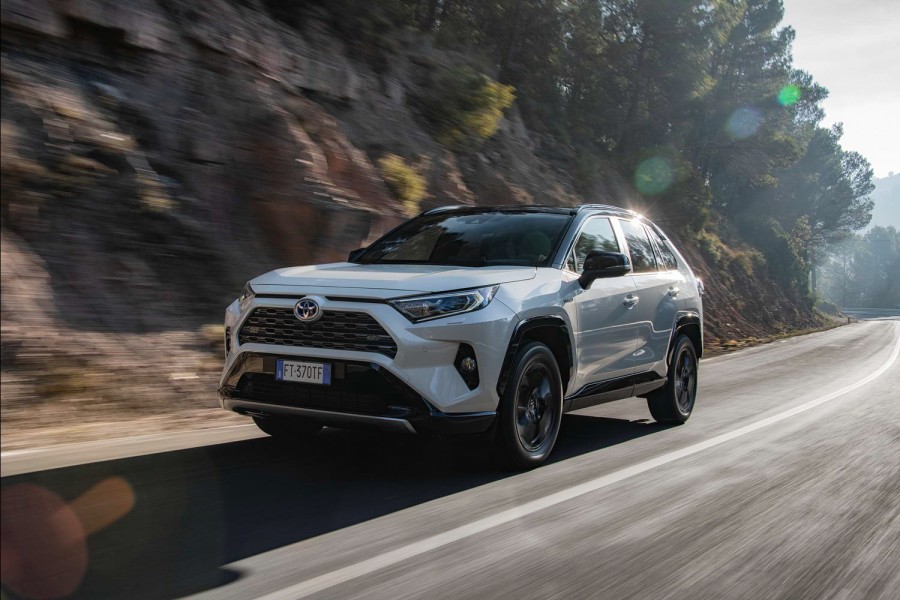This is the most powerful production Peugeot yet to see the light of day, but it also has an ecological purpose - it's the 3008 Hybrid4, a plug-in hybrid electric vehicle (PHEV) with a 300hp peak output, a 5.9-second 0-100km/h time and also the ability to do almost 60 kilometres in zero-emissions running with 1.3 litres/100km fuel consumption.
In the metal
Peugeot's plan to offer an electrified vehicle in every one of its product ranges by 2023 is gathering pace, but no part-electric nor full-electric showroom-spec Peugeot yet seen has been able to gather pace like this one. It's the 3008 Hybrid4, a 300hp/520Nm petrol-electric plug-in hybrid and those stats make it the French company's most potent series-production vehicle in its history so far. It's an evolved version of the drivetrain in the 508 Hybrid, with an additional rear-mounted electric motor powering the rear axle (for all-wheel drive), a larger 13.2kWh battery pack and also a 200hp derivative of the 1.6-litre PureTech petrol engine found in the 508 GT.
In terms of its emissions and economy, it's claimed to be about as green as the two-wheel-drive, single-electric-motor Hybrid drivetrain Peugeot has installed in the 508 (which, incidentally, will also make its way into the Peugeot 3008 later this year), but it's considerably more powerful, while the all-wheel-drive set-up means this is the first 3008 of the current generation to get four-wheel drive. Also like the 508 Hybrid, the 3008 Hybrid4 is denoted by a filler cap on each of the rear wings, 'HYbrid4' dichroic badging on the boot lid and the front wings underneath the A-pillars, Alcantara two-tone upholstery inside and extra switches and displays for the hybrid tech on the dashboard and in the digital screens. There's also a 'D/B' legend on the gear lever for the e-EAT8 transmission, which can increase the regenerative braking effect of the 3008 to the point it can be driven largely on the throttle pedal alone.
Sadly, while the Peugeot 3008's platform was prepared for electrification, the simple fact is, accommodating a second electric motor under the rear of the car has trimmed boot space, down from 520 to 395 litres with all seats in use. So if practicality is your be-all and end-all, a turbodiesel or petrol version of the same crossover might be a better bet.
Driving it
Make no mistake, the 3008 Hybrid4 feels every bit as quick as the on-paper stats and 'most powerful Peugeot' hype would have you believe. It's a fast machine, revving freely and accelerating smartly when you want it to. With little hesitance from the drivetrain or the gearbox, you'll find the 3008 makes the most of its all-wheel-drive traction to provide seriously impressive performance. It doesn't sound massively enticing, of course, and if there's any impediment to the car's overall refinement levels then it's the slightly coarse noise of the petrol engine as it passes 4,000rpm, but overall this feels like the sort of crossover-SUV that would, ordinarily, deserve a 'performance' epithet as befits a vehicle with 300hp.
It has slightly different drive modes to its Hybrid relations, though, with Sport, Hybrid and Electric carried over, but here Comfort is replaced by 4WD. This obviously preps the drivetrain for off-roading, a fact Peugeot was happy to show us by laying on a short, modestly challenging route that was muddy and gravel strewn. It's unlikely a 3008 Hybrid4 would do proper adventuring into the deepest wilderness, but it's also probably more capable away from the asphalt than a 3008 with just Grip Control would be.
In terms of its day-to-day capabilities, the 3008 is perfectly quiet and comfortable, yet its handling is also suitably talented... for what it is. While the regular models of 3008 drive pretty sweetly, the qualifier there is that they drive pretty sweetly for crossovers, which are inherently limited by their high centres-of-gravity and increased kerb weight. Speaking of which, adding two electric motors and a lithium-ion battery pack into the Peugeot has bumped up its mass by 350kg, which is a huge amount. This therefore means that, while the 3008 Hybrid4 has plenty of grip and a resolutely neutral balance to its cornering attitude, it always feels like a very heavy car if you start to hustle it. So it kind of defeats the point of putting such a twin-motor hybrid system in it, as the chassis doesn't feel like it is entirely comfortable with such lofty power and torque outputs.
What you get for your money
Including SEAI grant and VRT rebate, the Peugeot 3008 plug-in hybrid range starts at €37,995. That's for the Hybrid2 version with front-wheel drive and 'just' the 225hp, in Allure trim. Its emissions are 30g/km for super-low motor tax. The same powertrain is available in GT Line (€40,895) and range-topping GT (€44,495) specifications. Meanwhile, the four-wheel-drive variant tested here starts at €45,800 and is only available in GT Line or GT (€49,400) guises. It's worth noting that the confirmed pricing of the Hybrid2 puts it above the 1.5 BlueHDi diesel 3008 equivalent, but usefully below the (less powerful) 2.0 BlueHDi diesel. The Hybrid4 becomes the new range-topper in terms of pricing and performance.
Summary
While another technically impressive creation and a tax-busting way to owning a Peugeot 3008, the Hybrid4 is nevertheless a very heavy vehicle and one that may only be available in a (likely) high-priced specification for this market. It's great to have a Peugeot with 300hp, therefore, and the 3008's ability to run silently on electric power for long periods of time is most worthwhile, but we perhaps look forward to seeing this twin-motor drivetrain in a smaller, lower model in the years to come; maybe, something like the next-gen 308...

